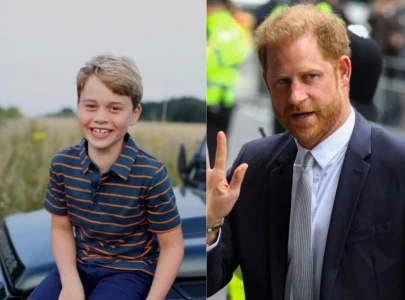
Police arrested eight protesters, the government said. The opposition accused the security forces of provoking the violence by firing tear gas.
Bahrain, where the US Fifth Fleet is based, has been in crisis since a revolt led by majority Shia Muslims began 18 months ago to demand democracy in the Sunni-ruled kingdom.
The government has denounced the protest movement, inspired by uprisings elsewhere in the Arab world, as sectarian and a part of a quest by Shia Iran to dominate the region. Bahraini Shias deny being steered from Tehran.
The violence broke out the funeral of 16-year-old Hussam al-Haddad, who was killed on Friday by police gunfire.
"A group of rioters bombarded police with Molotov cocktails and stones from the roof of a religious centre," a government statement said.
"Another group attempted to block several roads, while still others began an illegal rally on a busy road," it said, adding that eight people had been arrested.
The main opposition Wefaq party said riot police started the violence by firing tear gas at those mourning Haddad.
"Many injuries were reported as the regime forces opened fire at mourners," Wefaq said. "As usual, the regime forces backed the militias who took part in attacking the mourners."
The Interior Ministry said in another statement that a makeshift bomb wounded two policemen in a patrol on Wednesday morning in Sitra, an impoverished area southeast of Manama which is the scene of regular clashes between police and protesters.
Shotgun pellets
Authorities have not issued any permits for protests since June. Wefaq and witnesses said police set up roadblocks to prevent people attending the funeral, which was held on the island of al Muharraq.
The disturbances followed the arrest of 11 people on Monday evening during clashes with riot police in the capital Manama and Hamad Town.
Opposition activists said Haddad was also beaten by plainclothes agents. The Interior Ministry said the death resulted from police reacting in self-defence to a petrol bomb attack on a patrol.
Haddad's death was the first in the unrest since April, when a man was found on a rooftop covered in shotgun pellet wounds after clashes with police the night before.
The Shia-led opposition says more than 45 people have been killed in protests since June 2011, when the government lifted martial law it had imposed to help quash the uprising.
They also say hundreds of people have been arrested since the government said in April it would crack down on protesters who skirmished with police. The Interior Ministry has not said how many people are now in detention.
Bahraini authorities say more than 700 police officers have been hurt in clashes and that the police, who have not used live fire, have been exercising restraint. Opposition activists say the police are anything but restrained.
The opposition's central demand is for the elected parliament to have full powers to legislate and form governments.
King Hamad bin Isa Al Khalifa has approved constitutional reforms that give the assembly more powers of scrutiny over ministers and budgets.
The government and political parties have held low-key, inconclusive talks on how to end the turmoil.
Bahrain is an important card in a regional competition for predominance between Iran and US-backed Saudi Arabia.
US warships from the Fifth Fleet help ensure oil exports flow freely out of the Gulf while Iran has threatened a blockade if its protracted stand-off with Western powers over its disputed nuclear programme deteriorates into conflict.
Underscoring the high geopolitical stakes in Bahrain, Saudi and United Arab Emirates troops intervened in March 2011 to help the Al Khalifas contain the revolt, a move that caused a rupture in Manama's relations with Iran.





1735203131-0/Untitled-design-(7)1735203131-0-270x192.webp)
1735199120-0/Untitled-design-(100)1735199120-0-270x192.webp)


1735195617-0/Untitled-design-(99)1735195617-0-270x192.webp)

1735025557-0/Untitled-(96)1735025557-0-270x192.webp)











COMMENTS
Comments are moderated and generally will be posted if they are on-topic and not abusive.
For more information, please see our Comments FAQ